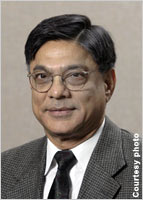President Obama outlined a bold energy agenda in his State of Union address. The U.S. urges governments in the Middle East to engage with protesters. The Afghan parliament opens in Kabul. We’ve got a report on how financial institutions must polish their public images. Many U.S. cities are hosting Iranian film festivals this winter. And, finally, another look at photo galleries on the rebuilding effort in Haiti.
 Obama’s Energy Agenda
Obama’s Energy Agenda
(mobile version)
President Obama sees a future in which Americans will drive electric vehicles and get their power from wind, solar, biomass, natural gas and nuclear plants. In his State of the Union address, Obama called for heavy investment in clean energy to help the United States transition to a stronger and more sustainable economy.
Winning the Future with Renewable Energy
(mobile video)
President Obama speaks about how innovation and investment in clean energy technology can help protect the environment while creating new jobs and growing the economy.
U.S. Urges Engagement with Mideast Protesters
(mobile version)
The Obama administration urges governments in the Middle East and North Africa to “actively respond” to the concerns of younger populations who are voicing their protests in the streets.
Afghan Parliament Opened
(mobile version)
The Afghan parliament opened on January 26 in Kabul, and the Obama administration calls this “a significant milestone” for the country’s democracy and its people. The United States “joins the Afghan people in celebrating today’s achievement and we encourage the Afghans to begin an inclusive dialogue on electoral reform,” says National Security Council spokesman Mike Hammer.
In Business, Reputation Matters
(mobile version)
Many companies know they need to maintain a good reputation to do or improve business, but rarely have they faced the kind of reputational challenges as financial and related industries do today, experts say.
Iranian Film Festivals in U.S.
(mobile version)
Several U.S. cities are holding Iranian film festivals this winter, allowing Americans to see what Iranian filmmakers have to say about their country.
 Photo Gallery: Rebuilding Haiti, One Year Later
Photo Gallery: Rebuilding Haiti, One Year Later
(mobile version)
One year after a 7.0 earthquake devastated Haiti, the United States continues its commitment to help the Haitian people build back better. Housing remains a critical issue, and USAID has partnered with several organizations to build transitional shelters. Explore this photo gallery about the rebuilding process. At right, a young boy peeks in at his mother in their newly constructed transitional shelter in Carrefour, Haiti.







